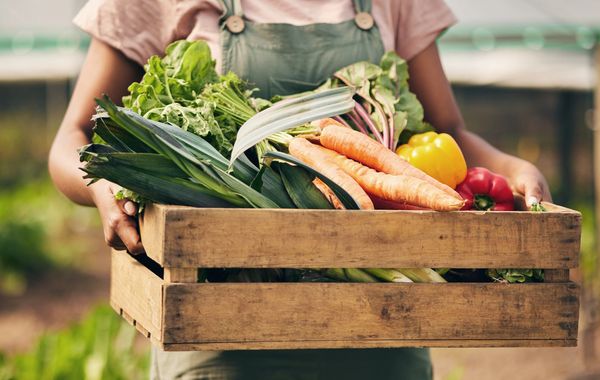Discover the impact of a healthy soil food web
Reduce inputs while increasing yield and nutritional quality
Discover the impact of a healthy soil food web
Reduce inputs while increasing yield and nutritional quality
Reduce inputs while increasing yield and nutritional quality
Reduce inputs while increasing yield and nutritional quality

At Living Soil Essentials, our mission is to make farming more profitable for farmers and sustainable for generations by:
Please reach out to us at info@livingsoilessentials.us if you cannot find an answer to your question below.
Healthy soil is more than dirt. It is also more than minerals, moisture and organic matter. What is essential for soil to be healthy is biology! When you have the appropriate amount of fungi, bacteria, protozoa and nematodes for the crop you are growing, and the appropriate ratio of fungi to bacteria your plants will thrive. This has been shown to be true in all soil types around the world. In the right ratio and amounts these organisms support plant life in a symbiotic relationship of mutual benefit.
A healthy food web of "who eats who" in the soil makes minerals and nutrients available to plants that they would not be able to access otherwise. With this balanced food web you can save money on inputs (fertilizers, herbicides, pesticides, fungicides and water) because the plants in that environment are less stressed and more able to fend off remaining pests. They will also more easily absorb nutrients, improving the yield and nutritional quality of the crop.
We generally can generate a report within 48 hours of receipt of your sample and send it to your email.
You can get all kinds of soil tests - for pH, minerals, NPK, carbon, CEC, electrical conductivity, organic matter, soil texture, etc. and add amendments to correct deficiencies based on those results. But if the biology is not present in the soil you can spend more and more on inputs every year while degrading actual soil quality.
If you are trying to improve soil quality by adding organic matter or compost, an analysis of soil biology will show clearly how successful those amendments have been and if you are heading in the right direction.
You want to make sure your soil organisms are not dormant so the soil should not be below 50-55 degrees Fahrenheit. It is a good idea to sample in the fall so you can amend the soil to add anything that is missing before winter arrives. Big changes can happed over the winter, so by springtime, when the soil reaches 50-55F you can check and see if the soil amendments you did last fall were successful.
It is very important to do a soil or liquid sample correctly to get accurate results for your situation. See our Proper Collection Protocol for Different Samples document.
To analyze a sample from one field location or one compost pile, or compost tea or compost extract or potting soil or worm castings costs $100 each. Please see our Hello letter for complete details on how to submit a sample.
Start with our Hello letter. Once you have understood the Collection Protocol and confirmed a spot with us for analysis using our Contact Us Form (below), collect your samples and fill out the Submission Form to include with your samples.
3957 Berkshire Ave, Warren, MI 48091, USA
+1.248-755-1154 Text messaging preferred
Mon | 09:00 am – 09:00 pm | |
Tue | 09:00 am – 09:00 pm | |
Wed | 09:00 am – 09:00 pm | |
Thu | 09:00 am – 09:00 pm | |
Fri | 09:00 am – 09:00 pm | |
Sat | 10:30 am – 09:00 pm | |
Sun | Closed |


An analysis of the biology of your soil, compost or liquid amendment based on the kind of crops you want to grow.


An analysis of the biology of your soil, compost or liquid amendment based on the kind of crops you want to grow.


An analysis of the biology of your soil, compost or liquid amendment based on the kind of crops you want to grow.


An analysis of the biology of your soil, compost or liquid amendment based on the kind of crops you want to grow.


An analysis of the biology of your soil, compost or liquid amendment based on the kind of crops you want to grow.


An analysis of the biology of your soil, compost or liquid amendment based on the kind of crops you want to grow.
Sign up for our semiannual newsletter for tips about soil health, testing recommendations and specials. We do not sell your information to third parties.